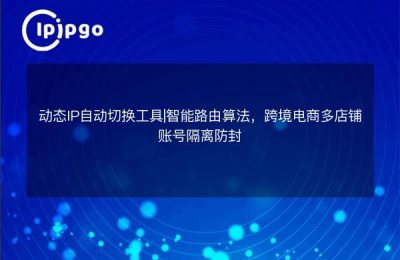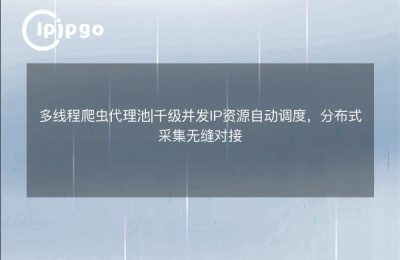
In today's digital era, with the popularization and development of the Internet, the issue of network security has become more and more important. People need to ensure the security of their personal information in their daily activities such as surfing the Internet, shopping, and working. Proxy IP has become a commonly used tool to provide users with a more secure online environment. However, in recent years, the practice of setting the proxy IP as static has gradually emerged, will this practice have any impact on network use? Let's find out.
1. Stability issues
One of the effects of setting the proxy IP as static is the stability issue. Static proxy IP is easy to be detected and restricted by some sensitive websites or platforms because it remains unchanged for a long time. For example, some online video websites will block static IPs to prevent chain theft and illegal distribution, resulting in users not being able to access normally. In addition, changes in the network environment may also affect the effectiveness of static proxy IP, such as network interruption, proxy server failure, etc., which may lead to failure to connect normally.
Solution:
To solve the problem of static proxy IP stability, you can use the strategy of changing IPs periodically. Changing IPs on a regular basis increases IP variability and reduces the risk of being restricted. It is also critical to choose a reliable proxy service provider, who usually offers a choice of IPs in multiple geographic locations that can be switched as needed.
2. Privacy breaches
Setting the proxy IP as static may also lead to the problem of privacy leakage. Once the static IP is acquired by unscrupulous people, they can track and locate the user's real location and identity information through the IP. This is a huge security threat for those who have important privacy to protect.
Solution:
To solve the privacy leakage problem, you can combine other security measures to protect personal privacy when using static proxy IP. For example, use encrypted transmission protocols (SSL/TLS) to protect data transmission and prevent sensitive information from being stolen during transmission; change IP addresses regularly to reduce the risk of being located; and set up strong passwords and double identity verification to improve account security.
3. Quality of service
Setting the proxy IP to static may have an impact on the quality of service. Since static IPs are usually used by multiple users at the same time, network congestion occurs when there is too much access. As a result, web page loading slows down and even access failure occurs. This undoubtedly causes inconvenience to users.
Solution:
To improve the quality of service, you can choose to use a professional proxy service provider. They usually provide stable servers and high-speed network connections to ensure the user's access experience. In addition, you can choose a proxy IP with larger bandwidth according to your needs to avoid access problems caused by network congestion.
To summarize, setting the proxy IP as static may bring stability problems, privacy leakage problems and quality of service problems. However, these problems can be effectively controlled as long as corresponding solutions are taken. When using a static proxy IP, we should choose it according to our own needs and actual situation, and combine it with other security measures to ensure the security and convenience of network use.








